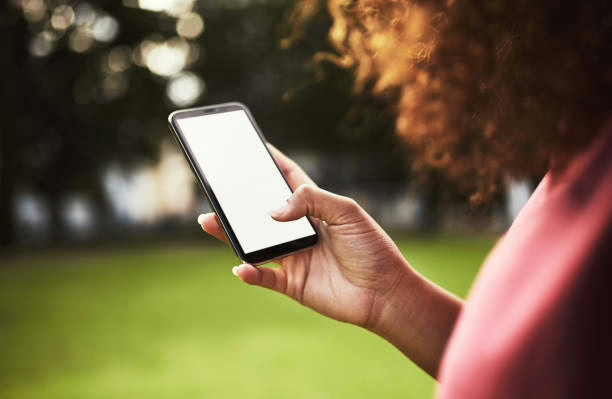
In this post…
In an era where social media has redefined human interaction, Instagram, among other social media platforms, promises a world of connection and shared experiences. Yet, for many, it has become a source of isolation and mental health challenges. While the platform was designed to bring people closer, studies suggest it can instead heighten feelings of loneliness, social comparison, and disconnection.
The Paradox of Connection
The modern world is more connected than ever before. With a simple tap, we can engage with friends, family, and even strangers from across the globe. However, despite this unprecedented access to others, the feeling of loneliness persists. Social isolation, defined as a near or complete lack of meaningful contact with others, is now recognized as a critical factor contributing to the rise of mental disorders.
Research reveals a troubling trend: for every 10% rise in negative experiences on social media, there is a corresponding 13% increase in loneliness. Platforms like Instagram, with their focus on curated visuals and idealized lifestyles, often contribute to these negative experiences by fostering unrealistic expectations and unhealthy comparisons.
The Instagram Effect on Mental Health
- Social Comparison and Low Self-Esteem
Instagram’s design encourages users to share highlights of their lives. This constant exposure to curated content can lead to unhealthy comparisons. People often feel inadequate when their everyday realities fail to match the glossy perfection displayed on their feeds. Over time, this can erode self-esteem and contribute to anxiety and depression. - Cyberbullying and Negative Interactions
The younger population, particularly those under 25, is especially vulnerable. Social media has created new avenues for cyberbullying, which can have devastating effects on mental health. A single negative comment or a barrage of online attacks can lead to feelings of rejection, anxiety, and even withdrawal from offline social interactions. - The Illusion of Connection
While Instagram allows users to interact with a wide audience, these interactions are often superficial. True connections require depth, empathy, and understanding—qualities that are difficult to cultivate through likes, comments, and direct messages. For many, the lack of meaningful engagement only exacerbates feelings of isolation. - Addiction and Overuse
The addictive nature of Instagram, driven by algorithms that reward users with intermittent likes and engagement, can trap individuals in a cycle of constant scrolling. This overuse often leads to neglect of real-world relationships and activities that are vital for emotional well-being.
The Role of Social Isolation in Mental Disorders
Social isolation is a silent but powerful catalyst for mental health challenges. It is linked to a range of disorders, including anxiety, depression, and even cognitive decline. For young people, the risk is particularly acute. The under-25 demographic is already navigating critical stages of identity formation and emotional development. Social media, when misused, can disrupt these processes, leading to long-term consequences.
Strategies to Protect Your Mental Health
- Limit Social Media Use
Set boundaries for your time on Instagram. Designate specific periods for social media and stick to them. Avoid using the platform during emotionally vulnerable moments or right before bed. - Curate Your Feed
Follow accounts that inspire and uplift you. Unfollow or mute accounts that trigger feelings of inadequacy, stress, or anxiety. - Engage Mindfully
Instead of passively scrolling, actively engage with content. Leave thoughtful comments or reach out to friends for deeper conversations. - Foster Offline Connections
Prioritize real-world interactions over virtual ones. Spend time with friends and family, join clubs or community groups, and participate in activities that bring you joy. - Practice Mindfulness-Based Ecotherapy
Mindfulness-Based Ecotherapy (MBE) can be a powerful tool for combating the negative effects of social media. By encouraging individuals to connect with nature and practice mindfulness, MBE helps ground emotions, reduce stress, and improve overall mental health. Spending time in natural settings, away from the digital world, can be particularly restorative.
Reclaiming Authentic Connection
The promise of social media was to create a world that felt smaller and more connected. However, it is up to us to use these platforms in ways that enhance, rather than detract from, our mental well-being. By setting healthy boundaries, engaging meaningfully, and prioritizing authentic connections, we can mitigate the harmful effects of Instagram and other social platforms.
In a time when digital interactions dominate, it is essential to remember that the most meaningful relationships and experiences often occur offline. Protecting our mental health requires a balanced approach to technology, mindfulness, and community.
Conclusion
Instagram has the potential to be a tool for connection, but it also carries significant risks for mental health if used without awareness. By understanding these risks and implementing strategies for healthier engagement, we can foster a more balanced relationship with social media—one that supports our well-being rather than undermines it.
Share Your Thoughts on Instagram!
What do you think? Are Instagram and other forms of social media taxing our mental health? Share your thoughts in the comments below!
And don’t forget to subscribe to our newsletter!

